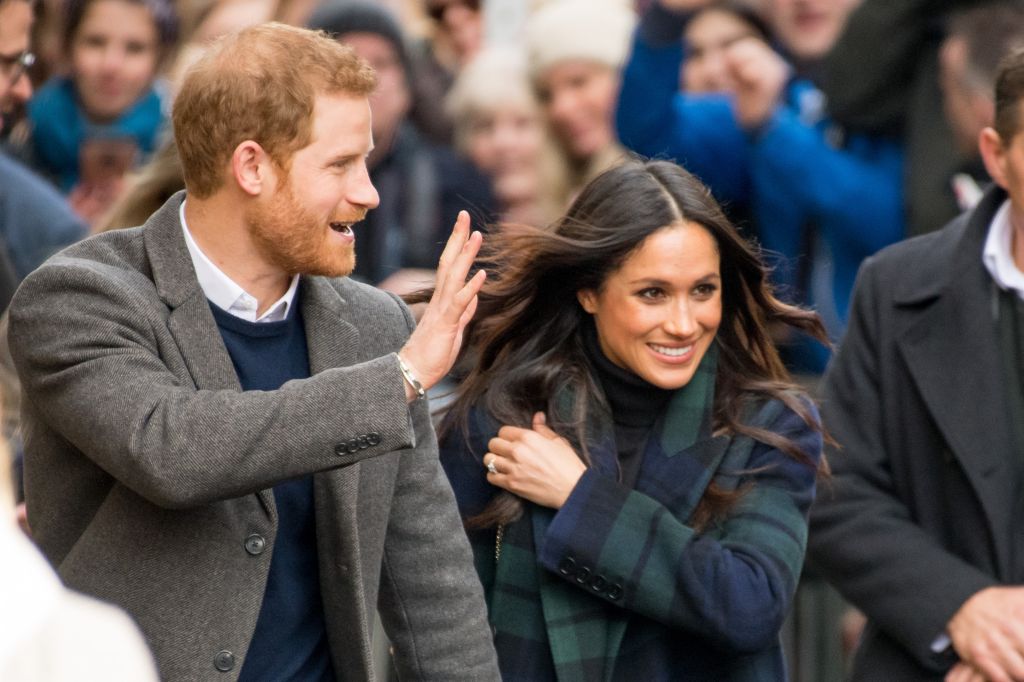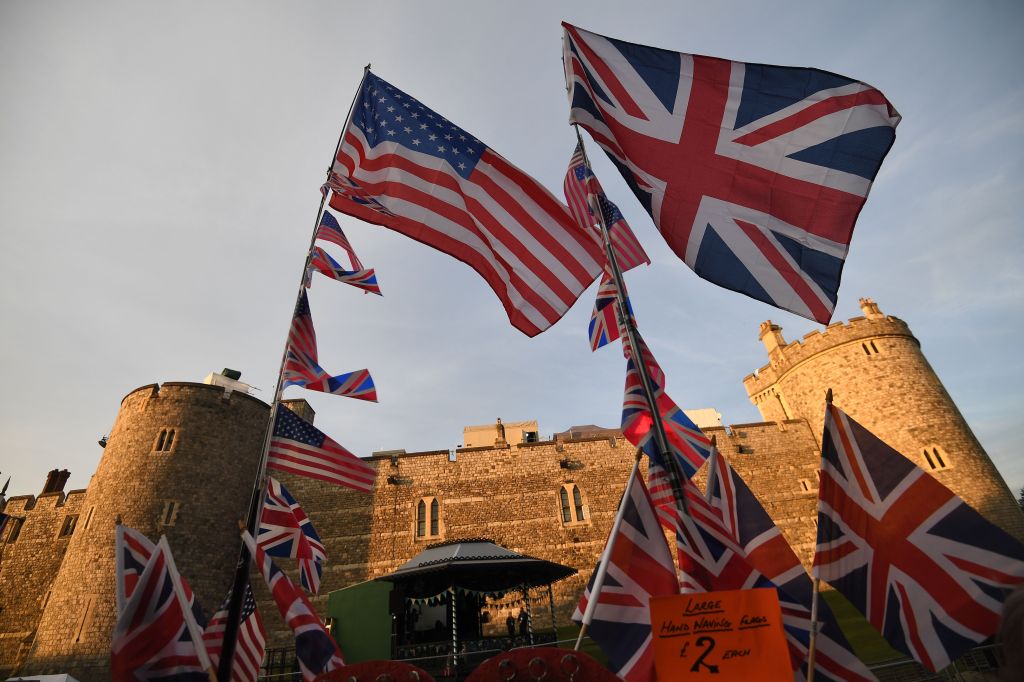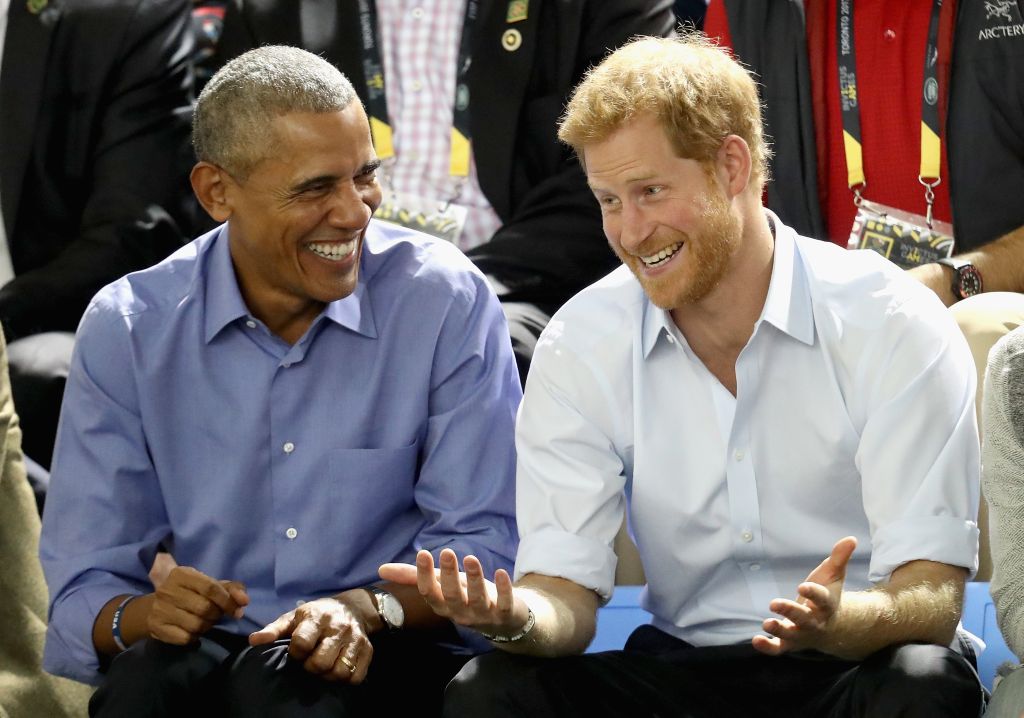
Source: Dutch Press Photo/WENN.com / WENN
On Saturday, May 19, Windsor Castle will be the site of wedded bliss, as Prince Harry and American actress Meghan Markle tie the knot in a highly anticipated royal wedding. And while there will be massive celebrations in the UK and globally, the couple will receive no gifts, as they’ve quietly opted to have guests donate to the charities they support.
Philanthropy has been a core tenet of Harry’s life since he was a child, passed down by his mother, the late Princess Diana of Wales. And Markle has been a champion for women’s equality for years, and a prominent UN ambassador. As every dress she wears becomes sold out in seconds, and their likenesses have set off a booming business of royal merch, so can they’re philanthropic influences take flight and inspire a new generation of humanitarians.
We spoke to philanthropic expert Eileen Heisman, of the National Philanthropic Trust, ahead of the royal wedding for insight on how the two change agents can inspire global activism.
CASSIUS: We know a lot about Harry’s contributions, and we know about the causes that were near and dear to his mom’s heart. And regarding Meghan’s history, gender equality is a major theme. Can you walk us through their philanthropy as single young people, and now as a high-profile couple?
Eileen Heisman: I can see Harry’s mother in all of his philanthropy. She was a person that broke the mold for how royals did their philanthropic work. She held AIDS babies, and she went and she did the land mines, causes that weren’t convenient or popular. She was willing to really go out and take a risk. So one of the things I see about these two young people together is that they’re really willing to adopt what Harry’s mother started, which is they’re not going to the safe, easy charities and the convenient charities. They’re really making some brave choices. He’s a brave person and Meghan’s brave in her own way. But I think they’re going to really make statements, and I don’t think they’re going to shout it from the rooftops, but I think they’re going to make it really clear and visible what’s of interest to them. I’m not really an expert on Meghan’s history of philanthropy. I think what caused my interest was that she supported a World Vision clean water campaign in Rwanda in 2016. And then she delivered a talk in 2016 alongside Justin Trudeau and called out the creator of her own TV show [Suits] for gender inequality. She worked in Rwanda, and she was there as an advocate for the UN. And I don’t know if you’ve seen the thing when she was 11 when she wrote a letter to Hillary Clinton, asking a company that had a really sexist ad to make the ad more gender-neutral. And she wrote a letter—pretty amazing at age 11—to Hillary Clinton, Linda Ellerbee and Gloria Allred, and the company responsible for the ad. And she got replies from all three women, and the company changed the wording for the commercial, to go from being dishwashing detergent for women to dishwashing detergent for people. And so, she’s brave. And she is not shy about identifying things that she thinks are unfair, and obviously advocating for women is a really strong and important issue for her. Part of me thinks that Diana is right there looking over them, and I think she’d be applauding this big time. And for him, having lost his mother at such a young age, it must be really really liberating to have a partner like this who’s going to be his partner in pursuing things that he’s had a family tradition of pursuing.
C.: I remember the Linda Ellerbee show on Nickelodeon and the fact that Meghan was young. And like you said, she’s really brave. Obviously, they’re going to have an amazing impact in whatever they do.
E.H.: If you look at their selections for the wedding, they don’t want gifts. They’d rather have people give to these charities they’ve selected. If you look at the charities that they’ve selected as a sample of what might be in the future for them, they’re really thoughtful, they’re really diverse, they address issues globally but also domestically in the UK. For children, for sports, for the environment, for veterans, for people with disadvantaged communities. So I think what we’re going to see is very thoughtful creative philanthropy that’s going to really encourage other people to give. You’ll see a lot of people following suit. My guess is that they’ll stay loyal to these [charities] for awhile or for a very long while, but they’ll be adding and looking at other issues as they become exposed to new problems that come up across the world. And because Harry’s not really in direct line to be king, with the three children [of his older brother, Prince William] and his brother, it’s going to give them a little bit of more freedom to speak with their philanthropic interests about how they want to make the world a better place. And I think that she really empowers him. I think he had this in him already, but I think she really empowers him to be bold and brave. But I don’t mean loud. I think they’re going to do it quietly, which I think is great. I don’t think you’re going to see her as a UN ambassador anymore, but I think she’s going to be able to speak with these endorsements and he will, too. I get asked this all the time, how do I know who I should give to? And one of the things I always say to people is you’ve got to do your homework. So the great thing about these two is that they have a team of people that are working on this, who are doing homework. So you can rely on the homework that somebody else has done to follow this lead.
And for him, having lost his mother at such a young age, it must be really really liberating to have a partner like this who’s going to be his partner in pursuing things that he’s had a family tradition of pursuing.
C.: You see this regarding the impact even with Kate Middleton. Every dress that she would wear, it would be completely sold out, and people really want to emulate people in the royal family. Seeing someone who looks like me and believes the things that I do is really empowering. A lot of people want to give, but they really don’t know where to start. So if you’re just a young person watching Harry and Meghan with their efforts, what are some of those basic entry points for everyday people to help?
E.H.: So I think obviously if there’s a person, a public personality that’s doing something, and you can see where they’ve given to, that’s a really easy way to get involved initially. And I would say look in your own backyard. There’s often great charities doing great work in your own backyard. You don’t have to support something in the UK that they’re doing. You can find a comparable entity locally or regionally, so look at your local newspapers, look in social media. Look at what all your friends are doing and see if you want to give or volunteer, or read more about them. I suggest any time you want to give a gift to a charity, to spend as much time as you do finding a restaurant. So if you go to Yelp and you spend ten minutes looking for a restaurant, then you should spend that equivalent ten or 15 minutes online. And if you can spend ten or 15 minutes, you’re going to know a lot about that charity, probably more than you would ever guess. And on the notes part of your phone, keep notes of the charities that people are talking to you about. Millennials seem to really like those kinds of connections, and it makes it really easy. But don’t just give—give and research, too. And figure out if it’s something you want to get more involved with. And I also suggest, and this is a little bit more of intense homework… there’s a national database of charity’s tax filings. It sounds really boring, but it’s guidestar.org, and if you want to see what a charity’s doing and see what their budget is, who’s on the board… you can find a lot by putting in the charity’s name and figuring out whether it’s a charity that you want to associate with.

Source: EMMANUEL DUNAND / Getty
C.: Although the two will be based in the UK, how do you think their influence will inspire philanthropic efforts stateside?
E.H.: The Brits don’t give as much as they do in the United States. We give about 2% of the gross domestic product, and I think the statistic in the UK is about .8%, a little less than 1%. So it’ll be interesting to see if it’ll actually increase the manner and the pound amount in which people in the UK actually give. It will be really interesting to see if it makes a difference. And also a lot of the things they’re featuring are global. The Invictus Games are global. So if you’re an American and you want to follow suit, you don’t have to necessarily give to what they’re giving in the UK. You can find a comparable entity here.

Source: Chris Jackson / Getty
C.: Harry’s success with the Invictus Games is off to an incredible start. How do you see this event growing in the next few years?
E.H.: I think they’re so new, it’s really hard to tell when something’s only a year or two old. I think you can really see it when it’s a little more mature, five years from now we’ll be able to see whether or not there’s going to be a legacy when people are coming back from fighting, if they’re disabled. And I think because he was in the service for ten years in Afghanistan, he really has a closeup feeling for what it’s like to be in wartime. And I think that it’s going to have a positive benefit on the lives of these individuals. But it’s really hard to tell this early. But the fact that he had enough wherewithal to organize it and have it launched, and that it really worked, and he’s committed to it. He attended it, she attended it. If he stays involved with it, my guess is that it’ll be only strengthened over time. And I think everybody who watches veterans knows that they have a really hard time reintegrating back into society, so I think we need to use every tool we can to help them, and sports is a great way.
















